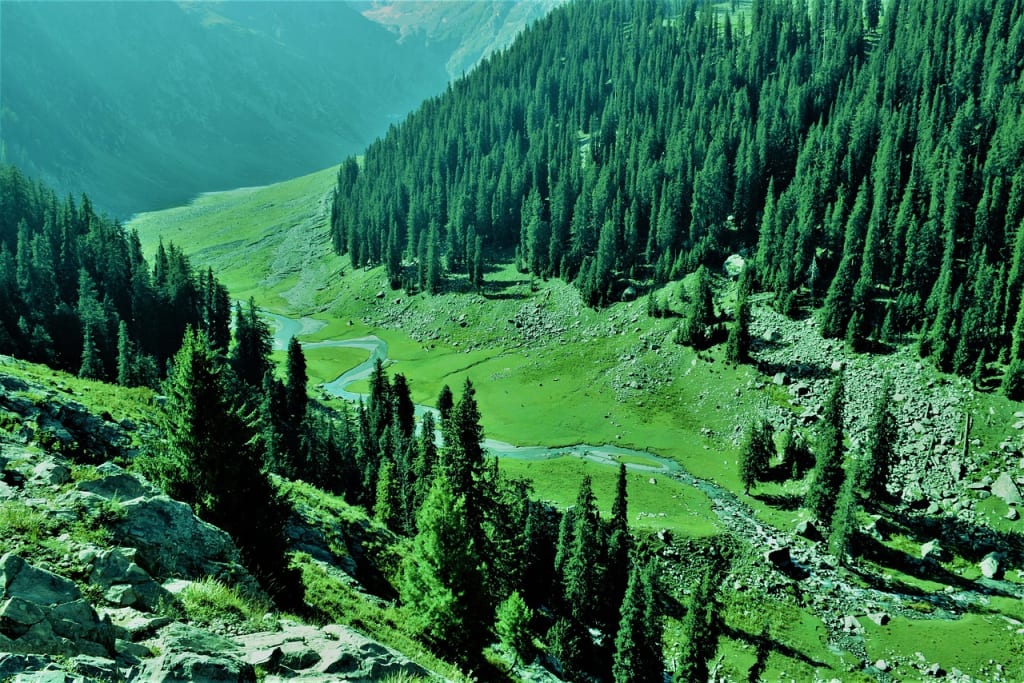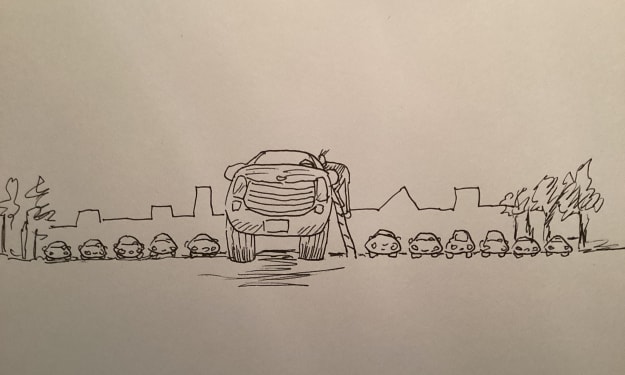THE REMAINDER OF KALASHA VALLEY, IN PAKISTAN
Where organised relationships win, the Kalash Valley

They once controlled the whole locale; however, the quantity of native individuals in the Kalash Valley is rapidly decreasing. In addition to the fact that this is an account of battle, it is also a story of a native culture wandering towards termination.
Amid the music of flute and drums, the Kalasha people danced till the sun Kush mountains, The occasion was the Uchaw festival but unlike ordinary celebrations, this was being held under the shadow of Kalashnikov-toting guard, even amidst the joy of festivities, fear among the Kalasha is almost palpable.
If a woman finds a new man during the festival, she can say farewell to her husband and begin a new life without raising eyebrows. Unlike other places in Pakistan, there is no concept of arranged marriage providing the ideal opportunity for girls and boys to wine and dine and find their ideal match.
In the beautiful Kalash Valley, when a domain where the native Kalasha were the native Kalasha individuals held influence, a strong story unfries – a story of waning numbers and a culture wavering near the precarious edge of termination. Despite the resonating reverberations of woodwind songs and cadenced drumbeats resounding through reverberations of woodwind songs and cadenced drumbeats resounding through the Kush mountains during the Uchaw celebration. There was a quality of fear.
The presence of Kalashnikov–huling watches fills in as an obvious sign of the trickiness of their reality. In the midst of the joyous celebrations. The unmistakable propensity of dread highlights the difficulties faced by the Kalasha people group. However, in the midst of the unrest. There exists a special opportunity for issues of the heart.
Here, in the midst of the lively festival, a lady finding another accomplice during the celebration can say goodbye to her ongoing spouse without cultural examination.
In contrast to the limits of traditional Pakistani society, where organized relationships win, the Kalash Valley offers an uncommon chance for youthful people to investigate and fashion their heartfelt predeterminations over shared dinners and sincere discussions. In the unspoiled valley, immaculate by the limitations of organized associations, the custom of romance twists, permitting affection to bloom unreservedly in the midst of the verdant slopes and flowing streams. Against the setting of old traditions and current vulnerabilities.
The Kalasha public endeavors to safeguard their rich social legacy, even as the ghost of social osmosis poses a potential threat. Each dance step, each sweet note, is a demonstration of their strength even with misfortune.
As the sun sets over the rough territory, providing a reason to feel ambiguous about the brilliant shades of the valley, the Kalasha public keeps on resisting the chances.
Sticking unflinchingly to their old customs develop fainter, a powerful indication of the dire need to shield this interesting social embroidery before it blurs into the fogs of time.
FESTIVE CACHE
The Kalasha is an ancient community that has historically been closed to outsiders and who are very guarded about their customs. Living in harmony with nature in three separated valleys of the Hindu Kush mountains, the ancient tribe has long protected its cultural mores and customs from the ‘outside’ sharing borders with Afghanistan, the valleys- Bamburate, Berir and Rumbur. The majority of them dwell in Bambutate. The Kalasha are shepherded farmers and a few of them own local businesses. Even fewer of the estimated 3,800 Kalasha have government jobs.
They are dependent on their livestock and farming-something that explains their festive seasons. There are three festive seasons a year in Kalash Valley: Camons, Joshi, and Uncaw. Chamos is the biggest festival, observed in December to celebrate the end of the year. The Kalasha sing and dance around a fire and sacrifice goats to welcome their god. Balalumnin, who is believed to have visited them during the festival.
During the last festival, two earthquakes happened,’’ says young Schamim in an incredulous tone. ‘‘I guess the first happened when Balaumain came and the other when he left the valley’’
The Joshi festival marks the beginning of spring. It takes place every year in May for a week. Customs dictate that everyone wears new clothes while women are to bejewel themselves heavily. They go to the hillside to sing and dance. They also decorate their houses.
The valley celebrates Uchaw or Uchal festival before the harvest season. And this festival, like the others, is marked by dancing and singing, paying homage to Mother Nature for blessing them with barley nature for blessing them with barley and wheat.
Uchaw used to carry on from July I till August 22, each year. But things have changed due to security reasons. Now only two days, 21 and 22 August, are earmarked for the Uchaw festival.
But even for this brief period, security of guests arriving is paramount, shahzada Jan, a Kalasha and owner of a guest house, says that due to deteriorating security circumstances, ‘every foreign national is given at least one guard when they visit the valley.
Settled in the distant valleys of the Hindu Kush mountains, the Kalasha people group remains a stronghold of old customs and social honesty. Protected by the rough territory and a well established hesitance to draw in with the rest of the world, they have shielded their traditions for a long time.
The three unmistakable valleys of Bamburate, Berir, and Rumbur act as the background for their lifestyle, with Bamburate being the essential settlement for most of Kalasha individuals.
Here, they lead a way of life profoundly entwined with the rhythms of nature, depending on animals raising and cultivating to support themselves. Despite their relative disconnection, a couple of Kalasha people take part in nearby organizations, while a significantly more modest division stands firm on government situations, mirroring their negligible connection with standard society.
At the core of Kalasha culture are their lively celebrations, each a demonstration of their veneration for nature and their otherworldly convictions. The Chamos celebration, held in December, denotes the climax of the year, with ceremonies that incorporate singing, moving, and goat penances to respect their divinity, Balalumnin.
This sacrosanct occasion is saturated with custom, representing the Kalasha's profound association with the heavenly and their current circumstance. In any case, the meaning of these celebrations reaches out past simple festival; they act as crucial anchors for local area union and character protection notwithstanding outer tensions.
The Joshi celebration proclaims the appearance of spring, a period of recharging and overflow. Enduring seven days in May, it is portrayed by the wearing of new garments and elaborate adornments, as well as shared singing and moving in the midst of the pleasant slope. Essentially, the Uchaw celebration, going before the reap season, sees the Kalasha offering appreciation to Nature for her abundant endowments of grain and wheat.
Nonetheless, the celebrations have not been insusceptible to the difficulties of the cutting-edge world. Security concerns have prompted the truncation of the Uchaw celebration to only two days, an unmistakable take-off from its earlier drawn-out span. In spite of these changes, the Kalasha stay focused on protecting their customs, even as they explore the intricacies of a quickly developing scene.
In the midst of the advancing elements, the Kalasha people group wrestles with the sensitive harmony among custom and advancement. Shahzada Jan, a Kalasha local and owner of a visitor house, highlights the principal significance of safety in an undeniably dubious world.
Thinking about the evolving scene, he uncovers the rigid measures carried out to guarantee the security of guests, especially unfamiliar nationals. Every visitor is doled out a committed gatekeeper, a distinct sign of the moving real factors defying the once separated valley.
However, in the midst of these difficulties, the strength of the Kalasha radiates through. Their steadfast obligation to safeguarding their social legacy stays immovable, rising above the progression of time and outside pressures. As they explore the complexities of a quickly globalizing world, they draw strength from their aggregate personality and shared history.
Regardless of the infringement of innovation, the substance of the Kalasha soul perseveres, woven into the texture of their regular routines and esteemed customs. Whether it be the cadenced thumps of the drum during celebration festivities or the serious ceremonies regarding their genealogical divine beings, the Kalasha keep on moving forward, directed by the ageless insight of their ancestors.
As the seasons back and forth movement, so too does the versatility of the Kalasha people group. Even with difficulty, they stand joined together, their social heritage filling in as an encouraging sign in the midst of the vulnerabilities of the cutting-edge world. What's more, however, the difficulties might be impressive, the soul of the Kalasha stays relentless, a demonstration of the persevering through force of custom and the unstoppable human soul.
About the Creator
Mirza Afzal Baig
I'm Mirza Afzal Baig, and I'm here to sprinkle a bit of magic on your reading experience. As an avid explorer of words, I've embarked on a journey to share stories, insights, and perspectives that will captivate your imagination.
Enjoyed the story? Support the Creator.
Subscribe for free to receive all their stories in your feed. You could also pledge your support or give them a one-off tip, letting them know you appreciate their work.






Comments
There are no comments for this story
Be the first to respond and start the conversation.